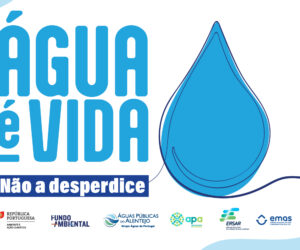Opinion (Rogério COPETO / Official GNR): DIE OF COLD AND HEAT.
This article was motivated to news published on Tuesday Public, day 22 October, with the title "Portugal unknown how many people live in energy poverty", which among other, It addresses the issue of mortality caused by adverse temperature extremes.
Lieutenant Colonel of the GNR
Master in Law and Security and Homeland Security Auditor
Head of the Education Division / Command Doctrine and Training
Already here in the LN I had the opportunity to write in August 2016, on "adverse extreme temperatures", then heat the reason, with the motto of the JN article 12 August 2016, with the title "More 31 deaths due to heat in the first 10 days of August" , where he realized that "the extreme heat that felt at home in the first 10 days of August have been responsible for the deaths of more 31 people, YoY, indicated today the Health General Directorate".
So it makes sense to address once again the issue of adverse extreme temperatures, but now the cold point of view, because now begins a period of low temperatures, and as the heat, cold also kills.
Returning to Tuesday Public Article, where it is stated that, "the thermal discomfort, in summer or winter, It can be fatal to those who already have health problems and are more vulnerable to extreme temperatures, as the elderly population, but it is a reality that much of the Portuguese population lives, literally. In a generic way, it is considered that those who can not afford to heat the house in winter, keep it cool in summer, or adequately illuminated, It is energy poverty", concluding that a substantial part of its population is in fuel poverty and for that reason, the risk of being able to die of cold or heat is real.
As mentioned, the theme of the deaths caused by heat and cold is a concern of any state, hair that Directorate General of Health (DGS), every year spreads before the summer "Contingency Plan Health Seasonal - Summer Module"And before the winter"Contingency Plan Health Seasonal - Winter Module", and either a, or into another feature "strategic guidelines and frameworks for communicating risk and its management to the population and partners of the health sector, as well as, empower citizens for their personal protection (literacy) and the readiness of health services to meet the increasing demand or a different search the expected ".
The "Summer Module" is activated in Portugal, between 1 May and 30 September and, possibly, other times depending on weather conditions and the "Winter Module" is activated in Portugal, between 1 October and 30 April and, possibly, other times depending on weather conditions, This second module having the purpose of "prevent and minimize the negative effects of extreme cold and respiratory infections, including flu, the health of the population in general and of particular risk groups. Included in the elderly risk groups, children and people with chronic diseases. Is intended-, also, minimize the occurrence of other events that impact on health, namely, poisoning by carbon monoxide and accidents".
The way that the DGS must monitor contingency plans, among others, It is through Information System of Death Certificates (SICO), whose platform has been running since 1 January 2014 and where all doctors insert the electronic death certificates, this being a pioneering system of public health surveillance in real time and updated every 10 minutes.
The SICO "is an information system whose purpose is to allow an articulation of those involved in the certification process of deaths, to promote the proper use of resources, improving the quality and accuracy of information and speed of access to data in safety and respect for the privacy of citizens " and aims: A dematerialisation of death certificates; Statistical analysis of causes of death; Updating the user database of the National Health Service (SNS) and the corresponding identification number assigned under the national users register (RNU); The issue and the electronic transmission of death certificates for the purpose of drawing up the death of seats". The wealth of information, we suggest a visit to SICO, where among other information, we learn or confirm that it is in the Alentejo, where more dies.
One of the consequences was the creation SICO spend there are fewer deaths from "unknown cause", because it allowed to gather as much information as possible regarding all deaths, It is to be categorized as "natural death", "External cause" and "subject to investigation", It is a "natural death", the leading cause of death in Portugal, a percentage of around 90%.
It is thus that since the establishment of SICO ceased to exist deaths by "unknown cause", because even 2014 the leading cause of death in Portugal was by "unknown causes", as stated in the Public 23 March 2008, in the article entitled "Causes of death of almost 13 thousand people were unclear".
And because it is an article about deaths from heat and cold reason, and because we find ourselves at the beginning of the coldest time of the year, We went to page DGS looking for advices, that to be so many, only those who transcribe the most vulnerable, should have special attention, when in his home, where we must guard against the adverse extreme temperatures: "Before winter, check the heating system in your home; If you have a fireplace send clean the chimney, if necessary; Keep airy house, opening a little window / door to prevent gas accumulation; Caulk windows and doors to prevent cold air intake and outlet of the heat accumulated; DO NOT use charcoal brazier; Keep the temperature of your home between 19 E os 22ºC ºC: install a thermometer in a visible place; In the case of be provided for the approach of a great period of cold or heavy snow, do their food shopping and other arriving for a period of 2 a 3 days to avoid having to leave home; Also check the need for additional gas cylinders; Make sure you have enough medicine; Avoid sleeping / resting too close to the heating; Do not be barefoot in cold or wet ground for long; Promote good air circulation, especially at night, not completely closing the rooms but avoid cold drafts; Save energy: turn off electrical appliances when not in home; Use them judiciously because of the risk of overloading the frame; The use of hot water bottle should always be made under surveillance to avoid the risk of burning".
Was non-compliance with some of these rules that have been the source of the first deaths, that have occurred by reason of the cold, as the newspaper I realized in its edition of 21 October, in the article entitled "Found old body in housing in the municipality of Bragança", where it is stated that "the victim will have fallen to the fireplace and just die charred".
Since the second occurrence happened on Tuesday, according to the JN the article entitled "child 10 years and couple found dead at home in Fundão", where PJ states that "at this time, everything points towards death was accidental and caused by carbon monoxide inhalation, resulting from malfunction of a water heater and the respective exhaust system".
Finished recalling that the health system and the civil protection system, which the GNR part, They are prepared to tailor their services and their answers, according to the "Contingency Plans for Extreme Temperatures Adverse", in order to minimize the impact of heat and extreme cold, the health of the entire Portuguese population, especially the most vulnerable, where GNR has special responsibilities, all citizens should stay informed and call Health 24 (808 24 24 24) or the 112 In case of emergency.

























